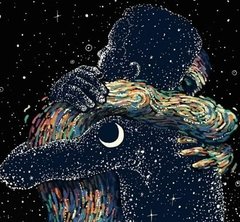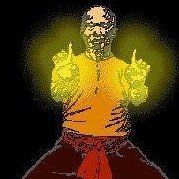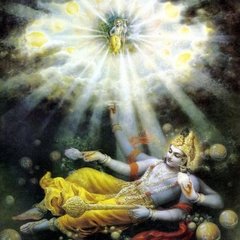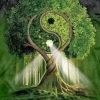Search the Community
Showing results for 'Dream'.
Found 7,590 results
-

Capitalism, private property and sociopathy
thelerner replied to blackstar212's topic in The Rabbit Hole
I can't tell if this is sarcastic. 'Fun' is bad, a luxury and hedonistic? No, it makes life worthwhile and keep us sane. And young. It can be overdone, but imo, its a necessity of life, and when we lose our spirit withers. My friend toured Russia in the 1980. I asked him what it was like. He said 'Gray, everything was gray, the people, buildings, clothes, the faces and expressions-gray. It was like living in monochromatic world.' Hopefully the internal life was better and brighter, but Communism had a brought about equality by making everything the same.. and sad. In communism, conformity ends up required. A very pure form of communism was practiced in Israel, on Kibbutz. Generally collective farms, Some of these were very purely Marxist. Children were group raised, no money, group planning, everyone according to there needs. Most of the extreme ones failed. Maybe not the first gung ho generation, but later on their kids who worked more and accomplished more, wanted more. A brilliant kid who wanted to become a writer, was told, that was silly, it doesn't put food on the table. He loved the Kibbutz, but left to pursue his dream, and became a famous writer. Many othere followed because they didn't want what the group wanted. They wanted more freedom. There are still Kibbutz but most of them are less strict and pure then the originals. In one word Freedom. Speaking of voting with your feet, you can volunteer for a Kibbutz and get room and board and food, in exchange for work, hard work. See what a very communist system is like. Or there are Communes, but many bright eyed new comers are amazed at the very hard work it takes to sustain a farm. -
Another way is the direct path - Self Inquiry. Ask constantly "Who am I?" and trace back to the source of that question..."Who asked that question? Who is seeking the answer?" Every time a thought arises, ask "Who am I?" Even when we start down this path in a mechanical basis, eventually one day the reality becomes apparent. All it takes is a minor adjustment to remember to do this as a practice all the time. This will eventually spill into sleep/dream time as well...
-
Phil, wonderful spiritual guide teaching via your dream! Ancient systems are weakened via innovation by those students who have not reached a high enough state of consciousness to really know what they are doing. The current state of world conditions reflect this when daily meditation of ancient cultures long ago became ineffective because the correct way to meditate was lost when later generations changed things around. One of my qigong teachers told me that only someone experiencing a very high level of Qi can ever create an effective qigong method. The last step of the teaching, Ri, is fascinating because it is saying that when you reach the level of Ri, your state of Consciousness is so high that you are spontaneously living and acting according to the Laws of Nature and therefore you do not make mistakes. So for someone in less than that state of consciousness to be innovative with a system from a long lineage to tamper with it, just has not made much sense to me. I come from a tradition of masters from the Vedic tradition that is safeguards the methods so carefully that when we were training to become teachers of this method, we could not change even one word in some of the teaching methods or else we would not have been allowed to be initiated as instructors. So if I qigong method is too difficult for me, I just drop it rather than make it easier to do. The benefits are not known when we change things around. Just my way of looking at this. But I understand breaking movements downs, that is how I learn them rather than trying to do the whole form over and over again. I master small parts of it and then I can follow along with the whole form.
-
"break each move into parts and memorize the concept" ? I am not really sure what you want to do, but maybe this is a good timing to tell about a dream I recently had. It was a very, very vivid dream, I would say that it felt more real than normal life and everything was much more colorful. I was in meditation pose in a white room. Then an older man came by and touched my head. I saw blue light everywhere and felt energy throughout my body. The old man told me 3 words: Shu, Ha, Ri. Then I woke up. Still got those words in my mind, but I thought it was just some words I made up in my dream, meaningless. Nevertheless, I searched for it in google and it came out that "shuhari" is a Japanese martial arts concept, describing the stages of learning to mastery. "It is known that, when we learn or train in something, we pass through the stages of shu, ha, and ri. These stages are explained as follows. In shu, we repeat the forms and discipline ourselves so that our bodies absorb the forms that our forebears created. We remain faithful to these forms with no deviation. Next, in the stage of ha, once we have disciplined ourselves to acquire the forms and movements, we make innovations. In this process the forms may be broken and discarded. Finally, in ri, we completely depart from the forms, open the door to creative technique, and arrive in a place where we act in accordance with what our heart/mind desires, unhindered while not overstepping laws." (Endo Seishiro, Wikipedia) What i am trying to say is.. among other things this dream to me was like a warning, to not skip "Shu", the fundamental stage. It doesn't have to be true to you and I dont want to tell you what to do and what not to do, but I just wanted to share it :-)
-
Before getting into the topic of difference between experience of Self and the actual Self Realization, let us try to understand what is the spiritual effort all about. According to Vedanta philosophy, the spiritual effort is all about identifying our own original Supreme Self within the subtlest core of our personality by giving up our wrong identification with the limited body,mind, intellect and ego that sustains our fallacious and illusory individual personality in the world. The other way to describe spiritual effort is to give up our selfish egoism and egocentric desires of the mind. From this we can easily find out that as long as one keeps talking about an experience of Self, seemingly he / she has still not achieved absolute Self Realization or Samadhi or Mukthi. Lord Shri Krishna when explaining about the state of Self Realization says that it is state of no return, meaning whoever is Self Realized are permanently freed from the bondage of continuous birth and death cycle that the individual Jeeva (Soul) goes through. the state of Self Realization is a transcendental state of consciousness beyond the waking dream and deep sleep state of consciousness. The Kenopanishad gives more proof of authentic Self Realization when the master warns the student that if one thinks that he knows about God or Self Realization, then he does not know about these and he further goes on to say that those who do not know God or Self Realization too know very well about these two.
-
Happens to me all the time (meaning - a lot). The mind interprets this with a sense of foreboding (apprehension that something bad is going to happen) -- but usually does not. I think in some alternate reality, something "bad" really happened following that moment. There is a dream like quality immediately following this. EDIT - Sometimes memories of an entire chain of events following the deja vu flash through the mind. Usually too quickly to comprehend. Sometimes things slow down just a bit.
-
------------------------------------------------------------------------------------------------------------------------------------ 61. There are nine types of devotion (bhakti, worship): Shravan, Kirtan, Namasmaran, Padsevan, Archana, Vandana, Dasya, Sakhya and Atmanivedan. 62. No one type is superior to the others, all lead to Parabrahman and proceed through the four stages of liberation described earlier. ~(#28) 63. The first type of devotion, Shravan, means listening but in present times can be taken to mean reading or any study leading to Parabrahman. 64. Through Shravan one learns about the five elements and the three qualities which make up the eight-fold creation (ashtadha prakriti). 65 The five elements are: Earth, Water, Fire, Wind and Space, each with its group of five attributes that make up the gross world. 66. The three qualities are: Sattva (purity, virtue), Rajas (worldly activity) and Tamas (ignorance, evil), each having a pure and impure form. 67. Through Shravan one learns about the four great statements, the four bodies and four states of consciousness, their origin and negation. 68. The Four Great statements are: Tat Tvam Asi, Pradyanam Brahma, Ayam Atma Brahman and Aham Brahmasmi. 69. The Four Great statements mean: You are That, Wisdom or True knowledge is Brahma, The Self is Brahman and I am Brahman. 70. The Four bodies are: Gross, Subtle, Causal and Supra-causal, which correspond to the four states of Waking, Dream, Deep sleep and Turiya. 71. Turiya means “the fourth”, a sense of pure ‘Being’ or ‘I Am’, on which the other three states appear to come and go. 72. When Shravan is intense one likes to hear or read only about Parabrahman, and then one gets focused on a single statement or word. 73. On meditating uninterruptedly on a single statement or word, it disappears along with the meditator and the wordless Parabrahman remains. ------------------------------------------------------------------------------------------------------------------------------------- 74. The second type of devotion is Kirtan, which means narrating stories of God and Bhajan, which is singing songs of God’s praise and glory. 75. These narrations or songs begin with descriptions of God with attributes (saguna) and end up on the God without attributes (nirguna). 76. The one doing Kirtan or Bhajan builds up a crescendo losing himself completely at the peak and merging into the formless Parabrahman. ------------------------------------------------------------------------------------------------------------------------------------- 77. The third type of devotion is remembering or reciting the name of God (namasmarana), any God that one easily loves can be chosen. 78. One should have the discipline to continuously recite or remember the name God in the morning, afternoon, evening and before going to bed. 79. One should not be without the name of God at anytime, whether in a state of happiness, sorrow, distress, worry or joy. 80. As the reciting or remembering of Gods name grows intense it follows a reverse path through the four types of speech (vani). 81. Speech or vani is one, but only for the sake of understanding has been split into four: vaikhari, madhyama, pashayanti and para. 82. Para means no word, pashayanti means formative or intangible word, madhyama means tangible word or thought and vaikahri means spoken word. 83. When we speak all four vanis are involved and operate as a single unit, in reverse order it’s a movement from the gross to the subtle. 84. In fact Sri Nisargadatta Maharaj has used the ‘vani’ or speech in reverse order (from ‘vaikhari to ‘para’) for going beyond. ------------------------------------------------------------------------------------------------------------------------------------- 85. The fourth type of devotion is Padsevan, which means, serving the feet of the Guru, without whose blessing nothing is possible. 86. Understand that the serving of the Guru is to serve the Sadguru (True master), with body, speech and mind to realize the Self. 87. The Sadguru points to what is true and provokes the thought of discrimination between the True (real) and false (unreal). 88. The Sadguru through his teachings inspires the inner determination with which one realizes Parabrahman, the Absolute Reality. ------------------------------------------------------------------------------------------------------------------------------------- 89. The fifth type of devotion is Archana, which means ritual worship of God as prescribed by the ancient scriptures. 90. The outward worship is usually done of an idol or image of God with different offerings, chantings and prayers. 91. The inward worship (manas puja) is done by closing the eyes and imagining the whole ritual worship in the mind. 92. Archana when done intensely becomes a meditation and leads to loss of individuality, then one merges with God and attains Parabrahman. ------------------------------------------------------------------------------------------------------------------------------------- 93. The sixth type of devotion is Vandana (Bowing) which means bowing in full prostration to God and Guru with deep devotion. 94. By bowing one becomes humble, doubts are removed and bonds of friendship develop with many good people. 95. There is nothing like bowing as it is easy and doesn’t cost anything. When bowing is done, it should be done with complete surrender. 96. On being intense, the devotion of bowing leads to complete loss of ego and one disappears in Parabrahman and is free forever. 97. It is believed that the One who masters the devotion of bowing, develops astonishing powers like even if he bows to a corpse it will come alive! ------------------------------------------------------------------------------------------------------------------------------------- 98. The seventh type of devotion is called Dasya bhakti which is to offer oneself completely at the service of God like a servant or slave. 99. In this type of devotion one does all his work, vocational or other duties, as a service to God and looks for God everywhere in his work. 100. Obviously when this type of devotion is done earnestly one is bound to lose all individuality and dissolve into the Reality or Parabrahman. ------------------------------------------------------------------------------------------------------------------------------------- 101. The eighth type of devotion is called Sakhya bhakti which is to develop a deep friendship with God. 102. One takes delight in this supreme friendship with God and loves him only and thus comes very close to him. 103. God means Atman or one’s own Self, in this devotion one stays with or befriends one’s own Self and never gives it up for even a moment. 104. In the intense practice of devotion of such a type that involves a deep friendship with the Self, attainment of Parabrahman is inevitable. ------------------------------------------------------------------------------------------------------------------------------------- 105. The ninth type of devotion is Atmanivedan which means self-surrender to God, for which one has to know what God is. 106. The scriptures tell us that to know God one has to look within oneself and thus in the quest of God a process of self-enquiry is undertaken. 107. One should find out ‘Who am I?’ Upon investigating what one takes oneself to be, it clearly reveals that there is no individual called ‘I’. 108. When misidentifications are cast off one by one, how can this ‘I’ remain? This is the way self-surrender happens easily. 109. When through discrimination (viveka), everything that is taken to be oneself is discarded, the ‘I’ is clearly seen to be non-existent. 110. When even creation is cast off and only the Self remains, how can any ‘I’ be found there? 111. The one true identity is Parabrahman, the second is creation that appears on it, so where can the third identity ‘I’ come in between? 112. The ‘I’ proved false and with misidentification of the body dispelled, on further investigation, it is seen that nothing really exists. 113. Thus it is revealed that because one takes the ‘I’ to be real, everything else such as the body, world and universe appear to be real. 114. By being the witness, misidentifications disappear, and with the experience of the Self (Atman), even the witness itself does not remain. 115. Only the Self remains in the beginning and the end, so how can there be an independently existing ‘I’? 116. The Self is One, the fullness of ‘Self-bliss’. With the understanding that ‘I am the Self’, where is there any separate ‘I’ remaining? 117. When one investigates ‘Who am I?’(koham?), ‘I am That’ (soham) is the answer and only the Self is seen, so how can any separate ‘I’ exist? 118. The Self has neither qualities nor absence of qualities, is neither dual nor non-dual, being devoid of attributes, how can ‘I’ exist there? 119. When the intellect becomes firm in the oneness of one’s ‘True form’ (swaroop), how can there be any separate ‘I’? 120. Such is the ninth type of devotion called self-surrender (Atmanivedan) which is the satisfaction of the knowledgeable (jnanis). 121. Without self-surrender (Atmanivedan), the cycles of birth and death cannot be escaped. This is a proven truth without any doubt. 122. If the nine types of devotion are practiced, one can gain the greatest ‘Liberation of identification with the Self’ (Sayujya Mukti). 123. Understand that ‘Liberation of identification with the Self’ (Sayujya Mukti) is unchangeable, irreversible and indestructible. ------------------------------------------------------------------------------------------------------------------------------------
-
The following is a twitter blog by Pradeep Apte called, "The Parabrahman." It consists of 221 tweets he put together. I've taken the liberty of correcting a few textual errors, and marking some divisions for easier reading. It's posted here in 4 sections... Please quote and comment freely. 1. With the grace of the Guru Sri Nisargadatta Maharaj, who is the “Sadguru Parabrahman”, Parabrahman tweets… 2. Right now, right here, while reading this, you are Parabrahman. The essence of Vedic science can be experienced directly and immediately. 3. As Parabrahman you are always there, yet unseen. Without the Sadguru’s teaching you can never ‘see’ yourself. 4. As these tweets proceed, always remember throughout that Parabrahman, Sadguru and the Guru Sri Nisargadatta Maharaj are all the same. 5. The direct teaching first, if you are spiritually mature enough to grasp it in one or few more re-readings, instantly you are Parabrahman. 6. The Guru says “You are Parabrahman and nothing else”. Accept it with great conviction and all that appears will seem to be palpably false. 7. I am the Parabrahman only! Adhere to this fundamental principle. 8. Accepting the Guru’s words with total conviction can transform your entire destiny, entire life. 9. The deep sense in you that ‘I am’ must accept that you are Parabrahman, not the mind. For that remain focused on the ‘I am’ without words. 10. By remaining focused or meditating on the ‘I am’ you become a witness to it and then, you stand apart as Parabrahman. 11. Only a non-illusory state can know the illusory state. The no-being state is the Parabrahman. 12. Brahman is manifest; Parabrahman is beyond or prior to that. Parabrahman is prior to consciousness or ‘I am’, it means the unborn state. 13. The eternal means: the Unborn. The truth is like that. The eternal is like that. 14. The one who recognizes all these time-bound stages is beyond time, is prior to time. Stay put there as the Parabrahman. 15. When knowing is transformed into not-knowing, that is liberation, you are Parabrahman. 16. Directly realize Parabrahman and finally know that nothing ever came to be. Thus rest in not-knowing with no need to know or read anymore. 17. Rare is the one bestowed with an extra-ordinary spiritual acumen to grasp the truth and realize Parabrahman at once or in a short while. 18. Such rare embodiments of truth, for the sake of the less fortunate ones, elaborate the teachings on Parabrahman as experienced by them. 19. We proceed with the teachings imparted by Sri Nisargadatta Maharaj through his dialogues using the Dasbodh by Swami Ramdas as a guideline. 20. The Dasbodh verse 51/sub-chapter 3/Chapter 8/ forms the very basis of the entire teaching of Sri Nisargadatta Maharaj. 21. “In the attributeless still expanse of Reality (Parabrahman) the inspiration ‘I Am’ arose. This is itself the primal illusion.” ------------------------------------------------------------------------------------------------------------------------------------- 22. Before elaborating on this, just for the sake of a new reader, or even the old one who wishes to brush up his fundamentals – a recap. 23. Knowledge means Self-knowledge where the Self sees only itself. This is called real or pure knowledge or “Jnana”. The Self is Parabrahman. 24. Primarily this means to know God. Knowledge is to reflect deeply upon the Eternal and the ephemeral and know one’s true “Self” (Swaroopa). 25. Nothing is found in the world as pure as Self-knowledge. As long as Self-knowledge is not clear everything is meaningless and useless. 26. The four stages towards Self-knowledge are, the Bound (Baddha), the Seeker (Mumukshu), the Aspirant (Sadhaka) and the Realized One (Siddha). 27. One can judge for oneself at which stage one is, only the One with Self-knowledge, the Siddha, can truly be said to be liberated. ------------------------------------------------------------------------------------------------------------------------------------- 28. Liberation, though a single step, is divided into four stages for understanding only: Swalokata, Samipata, Swaroopata, and Sayujya Mukti. 29. Swalokata means to live in the abode of God, Samipata means to live very close to God and Swaroopata means to appear like God. 30. In Sayujya Mukti one merges with God. It is ‘liberation as complete identification with the Self’, with no traces of any duality at all. 31. Liberation is a single movement of disappearance (of the false self or ego) and no clear boundaries can be drawn between these stages. 32. Understand well that the first three stages are reversible and one can fall back to old ways but Sayujya Mukti in irreversible and forever. ------------------------------------------------------------------------------------------------------------------------------------- 33. To acquire Self-knowledge or Parabrahman, meditation is the only way in which it can be done by the two main-stream teachings: Yoga and Vedanta. 34. In Yoga and Vedanta, meditation is a mental process by which the meditator becomes one with the object of meditation. 35. Concentration (dharana) is the preliminary stage, which when it becomes effortless and continuous takes the form of meditation (dhyana). 36. When the mind continuously flows towards its object, meditation culminates in total absorption (samadhi) in the object of meditation. 37. The sacred texts define concentration as one-pointed focus on any object, internal or external. 38. On focusing the mind uninterruptedly for twelve seconds on a specific object, we are said to achieve one unit of concentration. 39. Twelve such successive units of concentration make one unit of meditation, and twelve such successive units of meditation lead to Samadhi. 40. Concentration, meditation and absorption are the three depths of meditation which culminates in absorption into the object meditated upon. 41. The teachings of Sri Nisargadatta Maharaj and the Dasbodh are essentially of Vedanta, so the Yoga system is only briefly described here. ------------------------------------------------------------------------------------------------------------------------------------- 42. To attain the goal of Self-realization, the Yoga system employs an eight-fold system of practice consisting of eight steps or ‘limbs’. 43. The first five are restraint (yama), discipline (niyama), posture (asana), control of breath (pranayam) and withdrawal of mind (pratyahara). 44. The next three are concentration (dharana), meditation (dhyana) and absorption (Samadhi) already described in earlier tweets. ------------------------------------------------------------------------------------------------------------------------------------- 45. Meditation according to Vedanta is an intense form of worship (upasana) which eventually leads to the direct perception of Parabrahman. 46. The Vedantic practices for meditation are divided into two groups: foundational and structural. 47. In Vedanta, success in structural practices is proportional to the success in foundational practices. 48. The four foundational disciplines are: discrimination, dispassion, mastery over six virtues and intense longing for liberation. 49. Discrimination is between the real and the unreal and dispassion means giving up all desires, whether for this world or the next. 50. Of the six virtues to be mastered the first three are: control of mind, control of senses and withdrawal of mind from sense objects. 51. The next three to be mastered are: fortitude, faith in the words of the Guru and scriptures and concentration of the mind upon Brahman. 52. The essence of the six virtues is self-control, without which the quest for Self-knowledge is an empty dream. 53. Intense longing for liberation is most crucial as its intensity determines the achievement of the goal which is, Parabrahman. ------------------------------------------------------------------------------------------------------------------------------------- 54. The three steps of meditation in Vedanta are: hearing (shravana), reflecting (manana) and meditation (nididhyasana). 55. Hearing is listening to the teachings of the Guru, reflecting is thinking constantly on the teachings heard from the Guru. 56. Meditation is constantly doing the practice (sadhana) as prescribed by the Guru to the exclusion of all other ideas or thoughts. 57. Meditation practiced earnestly without interruption for a long time, with intense love for the chosen ideal, culminates in samadhi. ------------------------------------------------------------------------------------------------------------------------------------- 58. When Samadhi is with effort due to mental disturbances it is savikalpa, when these disturbances are absent it is nirvikalpa. 59. The immersion of the mind in the Self without its complete destruction (manolaya) is Kevala Nirvikalpa Samadhi. 60. With the mind destroyed (manonasa) and remaining permanently in the primal pure state without effort is Sahaja Nirvikapla Samadhi. -------------------------------------------------------------------------------------------------------------------------------------
-
I wrote right there on the bottom about transitioning from dream to the waking state. I think death is a similar transition. We all die everyday. So, there is nothing new in this. No, vivid replay of all previous nightmares put together. We have all lived, slept, dreamt, woke up, died, reincarnated in cycles before. It's just a process. We have done it so many times. In some experiences I know what I was in some previous births. I can state with confidence, there is no such thing as the process you described in detail. This is completely different from one person to another. It is different for the same person from one night to the night, one death to the next...
-
Every single dream and nightmare will get replayed vividly, no escape. Really? what would be the purpose or reason for something like this? To repeat the nightmares a person already went through, one more time in detail, vividly without instinctual support??? (Does it happen in IMAX 3D? Will the dead person get googles? If so, do you know what kind of goggles also? Does the sound play on Dolby or DTS? I personally prefer DTS, can I book ahead) I am curious. where are these things that you describe, stated? in what scripture or books? Whatever be the source, it sounds like crap to me. Creator or no creator, no one would want to put some one through a process like that. there should be a reason and rhyme for things, or there should be none. I am sorry to state this, whichever way I look, whatever you have written sounds nonsense. There may be some minor truths in it. Edited to add: Death is just a transition in the state of consciousness. Just like from the dream state to the waking state. Yes, this worldly life is a much more complicated and intricate dream. When we wake up (die) from this dream, the transition can possibly be hard and shocking. There could even be flashes like flashes of dream. Still, it is nothing but getting out of one dream to another state. But, playing "all nightmares back vividly" once again??? What is this, some kind of rewind back and play all the nightmare with added effects and no reprieve. Sounds like a pre-planned torture scheme. If this were to be true, whoever or whatever designed this playback of all vivid nightmares should be cruel with no heart.
-
Its like every single dream and nightmare in one's lifetime, all of it gets replayed, only this time there are no gross impediments to filter the vividness. For example, while alive, if a nightmare gets too extreme, survival instinct kicks in and usually jolts a person awake, accompanied by bewilderment for a brief moment. After the body disconnects with the breath for good, there won't be the luxury of accessing any such instinctual support, and what follows in the interim are usually unimaginable confusion and fear, then a period tinged with immense affection, warmth, love, light and so on, with both phases occurring randomly. But the clarity during this period is beyond anything ordinary people will have any recollection or familiarity with. This is one of the reasons why the majority of people have this primordial fear of death - apparently its because of a build-up of frightening memories, over many many lifetimes, of past intermediate (after death) experiences. There are many adepts from different traditions and shamans from all over the world who cultivate what is commonly known as 'death practice', which means they are able to mortify the body to such an extent where death can be simulated. Depending on the degree of their mastery, the intermediate experiences can be recounted, some with pin-point accuracy. There have been books written of a common thread that is shared by all these shamans and adepts insofar as this practice is concerned. I read one years ago, but cannot remember the title now.
-
I suspect the mind interacts without the body in death, much the way it does in dreams. This I think is why the setting and atmosphere of the mind is so crucial for the death transition and why, say the Tibetans for example, put such emphasis and have such broad and deep processes and practices training the mind and dream work. My experiences outside the body are nearly identical to my lucid dreams. My wife's short death experience, (several of the longest minutes of my life), supports this as well.
-
it can be same, you need to stimulate that area for particles and mental image or scene rises for other kind of sensation. eyes can trigger the water flow, then that kind of process is not the particle and mental image. But still it is also not possible to avoid. the third thing the surge of energy, it happen in dream while lucid. So the regular ordinary O is there is a lucidness but it happens real quick. so if you celibate, then lucid dream happen with happy ending, while no fluids happen(or little). three processes. With ordinary human style you have three in succession in a very short time. If you follow natural path then these occur on different days, times, longer time, because there are other places and things to go through also what ordinary style will be not witnessed or experienced, because it is too fast. to sum it up, lucid dream is a important factor somehow. Also you can transmit "lucid dream" but it is ina shape of a information, it has movement in it or function, to other person.
-
looks like my delusional dream of what I'll soon become
-
I can only respond that the view from here is a bit odd. albeit fantasy, dream , reality, wishful thinking, anger, fill in the blank............................................ failure is fear is and then sometimes not. finding ways to interact and be kind communicating I may find something nice to say and you might cringe--- but I am going to do it and you may reject it. :-)
-

What does a psychic attack ( by other human) looks like?
rex replied to qicat's topic in Esoteric and Occult Discussion
Psychic attack can come from energised thought forms attached to physical objects. Edward Bulwer-Lytton's story of a haunted house which affected people and animals very badly, like dying of terror, is a good fictional account, it's called The Haunted and the Haunter; or, the House and the Brain. It can be read in this anthology (page 31) or read as a pdf. There are good descriptions of what experiencing an attack may be like. The severity of symptoms varied depending on the spiritual integration and self-awareness of the individuals. The story ends with finding the energised object: "We found no more. Mr. J---- burnt the tablet and its anathema. He razed to the foundations the part of the building containing the secret room with the chamber over it. He had then the courage to inhabit the house himself for a month, and a quieter, better-conditioned house could not be found in all London. Subsequently he let it to advantage, and his tenant has made no complaints." The salient explanation is quoted here: "What is commonly called mesmerism could not do this; but there may be a power akin tomesmerism, and superior to it--the power that in the old days was calledMagic. That such a power may extend to all inanimate objects of matter Ido not say; but if so, it would not be against nature--it would be onlya rare power in nature which might be given to constitutions withcertain peculiarities, and cultivated by practice to an extraordinarydegree. That such a power might extend over the dead--that is, overcertain thoughts and memories that the dead may still retain--andcompel, not that which ought properly to be called the SOUL, and whichis far beyond human reach, but rather a phantom of what has been mostearth-stained on earth, to make itself apparent to our senses--is a veryancient though obsolete theory, upon which I will hazard no opinion. ButI do not conceive the power would be supernatural. Let me illustratewhat I mean from an experiment which Paracelsus describes as notdifficult, and which the author of the _Curiosities of Literature_ citesas credible:--A flower perishes; you burn it. Whatever were the elementsof that flower while it lived are gone, dispersed, you know not whither;you can never discover nor recollect them. But you can, by chemistry,out of the burnt dust of that flower, raise a spectrum of the flower,just as it seemed in life. It may be the same with the human being. Thesoul has as much escaped you as the essence or elements of the flower.Still you may make a spectrum of it."And this phantom, though in the popular superstition it is held to bethe soul of the departed, must not be confounded with the true soul; itis but eidolon of the dead form. Hence, like the best attested storiesof ghosts or spirits, the thing that most strikes us is the absence ofwhat we hold to be soul; that is, of superior emancipated intelligence.These apparitions come for little or no object--they seldom speak whenthey do come; if they speak, they utter no ideas above those of anordinary person on earth. American spirit-seers have published volumesof communications in prose and verse, which they assert to be given inthe names of the most illustrious dead--Shakespeare, Bacon--heaven knowswhom. Those communications, taking the best, are certainly not a whit ofhigher order than would be communications from living persons of fairtalent and education; they are wondrously inferior to what Bacon,Shakespeare, and Plato said and wrote when on earth. Nor, what is morenoticeable, do they ever contain an idea that was not on the earthbefore. Wonderful, therefore, as such phenomena may be (granting them tobe truthful), I see much that philosophy may question, nothing that itis incumbent on philosophy to deny, viz., nothing supernatural. They arebut ideas conveyed somehow or other (we have not yet discovered themeans) from one mortal brain to another. Whether, in so doing, tableswalk of their own accord, or fiend-like shapes appear in a magic circle,or bodyless hands rise and remove material objects, or a Thing ofDarkness, such as presented itself to me, freeze our blood--still am Ipersuaded that these are but agencies conveyed, as if by electric wires,to my own brain from the brain of another. In some constitutions thereis a natural chemistry, and these constitutions may produce chemicwonders--in others a natural fluid, call it electricity, and these mayproduce electric wonders."But the wonders differ from Normal Science in this--they are alikeobjectless, purposeless, puerile, frivolous. They lead on to no grandresults; and therefore the world does not heed, and true sages have notcultivated them. But sure I am, that of all I saw or heard, a man,human as myself, was the remote originator; and I believe unconsciouslyto himself as to the exact effects produced, for this reason: no twopersons, you say, have ever told you that they experienced exactly thesame thing. Well, observe, no two persons ever experience exactly thesame dream. If this were an ordinary imposture, the machinery would bearranged for results that would but little vary; if it were asupernatural agency permitted by the Almighty, it would surely be forsome definite end. These phenomena belong to neither class; mypersuasion is, that they originate in some brain now far distant; thatthat brain had no distinct volition in anything that occurred; that whatdoes occur reflects but its devious, motley, ever-shifting, half-formedthoughts; in short, that it has been but the dreams of such a brain putinto action and invested with a semi-substance. That this brain is ofimmense power, that it can set matter into movement, that it ismalignant and destructive, I believe; some material force must havekilled my dog; the same force might, for aught I know, have sufficed tokill myself, had I been as subjugated by terror as the dog--had myintellect or my spirit given me no countervailing resistance in mywill."There are more interesting details but I don't want to give too many spoilers.- 23 replies
-
- 4
-

-
- psychic attack
- dao magic
-
(and 1 more)
Tagged with:
-
Siddhis are very powerful to gain...but focusing on them isn't worth it at all. They will distract you from the main goal and being a good and honest person which is the most important thing in the end. Some develop lightness skill some don't. It's just another siddhi. It's just Qi opening up and making you light. That's all. What is this really good for, to impress others...possibly. But for you? You gain nothing out of it. It's a miracle, a mirage, a dream within this dream of reality...many attributes of what the MIND is capable of. Remember you have a Divine nature, you could act like a god and create an entire universe if you wanted to...but this 'feature' has been locked up because of your current condition as a human (your karma). So let's focus on improving ourselves and being good and gentle to other people, the animals and the environment. I dislike, reject and despise them (The Buddha). + 1 The Buddha and the miracles.
-
To know the actions of heaven and to know the actions of man, that's the ultimate! She who knows the actions of heaven will live in accordance with heaven. She who knows the actions of men can nourish what is unknown to her intellect with what is known to her intellect. Thus she can live out the years allotted to her by heaven and not die midway. This is the height of knowledge. However, there is still some difficulty. Namely, knowledge has to depend on something for its consequent accuracy, but that which it depends on is particularly unstable. How do we know that what we attribute to heaven may not be due to man, and that what we attribute to man may not be due to heaven? Only when there is a true man is there true knowledge. Only one whose knowledge can ascend the heights of the Way can be like this. What is a true man? The true man of old did not oppose the minority, did not strive for heroic accomplishments, and did not scheme over affairs. Such being the case, he did not regret it when he made a mistake nor feel smug when he was right. Such being the case, he could climb high without trembling, enter water without getting soaked, and enter fire without feeling hot. The true man of old did not dream when he slept and did not worry when he was awake. His food was not savory, his breathing was deep. The breathing of the true man is from his heels, the breathing of the common man is from his throat. The words of those who unwillingly yield catch in their throats as though they were retching. Those whose desires are deep-seated will have shallow natural reserves. The true man of old knew neither fondness for life nor aversion to death, was neither elated by going forth nor reluctant to return. Casually he went and casually he came. He neither forgot {{An important word in the Chuang Tzu that became a technical term in later Taoism, especially for those schools that emphasized meditation. It signifies the emptying of the mind that brings utter calm and peace.}} what his beginning had been nor sought what his end would be. Happily he received and forgetfully he returned. This is what is meant by not detracting from the Way with the mind, not assisting heaven with the human. This is what we call a true man. Such being the case, his mind was forgetful, his visage calm, his forehead beamingly broad. Austere as autumn, warm as spring, his joy and anger were in touch with the four seasons. He was compatible with all things but no one knew his limits. {{Therefore the sage, in his conduct of war, might forfeit his state, but would not lose the hearts of his people. His benefits might extend for ten thousand generations, but it would not be for love of man. Therefore, he who delights in linking up with things is not a sage. He who is partial is not humane. He who is negligent of the seasons is not worthy. He who cannot perceive the linkage between benefit and harm is not a gentleman. He who loses himself through pursuit of fame is not a nobleman. He who destroys himself through untruthfulness is not a freeman. Men such as Hu Puhsieh, Wu Kuang, Poyi, Shuch'i, Master Chi, Hsŭ Yu, Chi T'o, and Shent'u Ti were all servants of freemen. They strove to delight others, but did nothing to delight themselves. All of these individuals were unbending moralists who were executed, ended up committing suicide, or went mad.}} The true man of old Was towering in stature but never collapsed, Seemed insufficient but accepted nothing; Aloofly independent but not obstinate, Amply empty but not ostentatious, Merry, as though he were happy, Demurring, as though he were compelled, Suffused with an alluring charm, Endowed with an arresting integrity, Stern, as though he were worldly, Arrogant, as though he were uncontrollable, Reticent, as though he preferred to clam up, Absent-minded, as though he forgot what to say. Thus his likes were reduced to one and his dislikes were also reduced to one. His "one" was one and his "not one" was also one. Being "one," he was a follower of heaven. Being "not one," he was a follower of man. He in whom neither heaven nor man is victorious over the other is called a true man.
-
I have been noticing that different people use different tools, through which, they get over, or face their issues and fears. Some of different tools so far I knew about: - The use Lucid dreams through which they face the issue in dream world, - visualization. - The use hypoginia state - NLP (Neuro-linguistic programming) professional or psychotherapist. - The use the present process, in maintaining focus on the now. - observing thoughts. What are your technique to release your triggers and problems ? how it works for you? did you try any other technique ? and you ever wondered that some technique may fall under the "escapism" way or maybe dualistic approach ? Thank you for your time
- 19 replies
-
- 1
-

-
- Meditation
- healing
-
(and 2 more)
Tagged with:
-
People have been able to talk shit online for over 30 years, but it's only become a common hobby since Facebook and Twitter. I've been discussing bullshit with friends and on the internet since I was a teen -- I remember my first message board, a gangsta rap forum in the '90s, quite clearly! -- and I'm aware that I'm not the only one, but it seems like the number of political "experts" and idiots shouting opinions has increased massively in the last few years, partly due to the popularity of "social media". On the one hand, it was a previously unimaginable dream for any democracy to be able to supply its people with so much information and have them so involved in the discussion. On the other hand, this is why I've always been wary of democracy...
- 24 replies
-
- 1
-

-
- Automated propaganda machine
- (and 3 more)
-
interestng post , i have had numerous long term relationships and currently single but have dreamt for a long time of a certain woman , she is always different in appearance but always the same in spirit, I adore this woman with all my being , and is the only lady I dream off that I do not have sexual contact with , I always just hold her and treat her like a goddess as cheesy as that sounds. I am starting to think she isnt human , maybe some connection with the higher feminine ?
-
Why would i want to feed my demons they have taken enough from me and ruined my life. Im talking actualy entities i have seen. I have been under demonic oppresion...the best way to sum it up. But i think these entities have been abducting me since i was a toddler or a baby even...after all my research into alien abduction shows that abduction is a life long thing and if your seeing them then most likely your an abductee... i have other reasons to belive so also. It was only in 2013 when thanks to mindfulness meditation i started to over come my porn addiction, that summer i managed to go three weeks no fap and i woke up in sleep paralysis with a grey alien standing at the foot of my bed. Another experience i had was a year and a half later when as i was waking up i felt energy being drained from my left arm, i tunred my head over and before i opened my eyes i saw a reptilian entity, in what im guessing is the astral plane, arm outstretched holding my hand with a big creepy grin on its face. Ive done silly simon before and the first big visual to hit me was what looked like an alien language, although i cant remember it properly now. But its was compicated and vivid nothing my imagination could come up with, this was many years ago before the entity experiences i mentioned. The language was golden, shining in a double helix spinning in a giant void with other strands in the distance and it seemed to go well with the music i was listening to. The thing it reminded me of though was serpent like in essence a bit like the dollar bill sign $ or just S is serpent like, but more complicated, like if a reptilian alien language existed it would look like that. I think psychadellics can open you up but not necessarily and perhaps they just show you what is already there. My bloodline is probably cursed. I might have found a solution though, although its even harder to believe. After hearing so many near death experiences about Jesus i ended up going to church...long story short i had chritians pray for me and i confessed sins ect ect. A week later i ended up wrestling with that entity in a dream or out of body and we fell on my bed except my hand was on it, it seemed pretty short actually and it was wriggling and gyrating...thrusting its hip peversely, i some how called on Jesus and the entity evaporated. Yep what the actual ****
-
Hi, Tao Stillness what do you mean by negative energy? I have been under demonic oppresion...the best way to sum it up. But i think these entities have been abducting me since i was a toddler or a baby even...after all my research into alien abduction shows that abduction is a life long thing and if your seeing them then most likely your an abductee... i have other reasons to belive so also. It was only in 2013 when thanks to mindfulness meditation i started to over come my porn addiction, that summer i managed to go three weeks no fap and i woke up in sleep paralysis with a grey alien standing at the foot of my bed. Another experience i had was a year and a half later when as i was waking up i felt energy being drained from my left arm, i tunred my head over and before i opened my eyes i saw a reptilian entity, in what im guessing is the astral plane, arm outstretched holding my hand with a big creepy grin on its face. Ive done silly simon before and the first big visual to hit me was what looked like an alien language, although i cant remember it properly now. But its was compicated and vivid nothing my imagination could come up with, this was many years ago before the entity experiences i mentioned. The language was golden, shining in a double helix spinning in a giant void with other strands in the distance and it seemed to go well with the music i was listening to. The thing it reminded me of though was serpent like in essence a bit like the dollar bill sign $ or just S is serpent like, but more complicated, like if a reptilian alien language existed it would look like that. I think psychadellics can open you up but not necessarily and perhaps they just show you what is already there. My bloodline is probably cursed. Sorry for going off topic. I might have found a solution though, although its even harder to believe. After hearing so many near death experiences about Jesus i ended up going to church...long story short i had chritians pray for me and i confessed sins ect ect. A week later i ended up wrestling with that entity in a dream or out of body and we fell on my bed except my hand was on it, it seemed pretty short actually and it was wriggling and gyrating...thrusting its hip peversely, i some how called on Jesus and the entity evaporated. Yep what the actual **** Again sorry for going off topic.
-
Doing an academic paper on Daoism (living the dream!) I'm looking for the passage where Zhuangzi says roughly the following: "[Even the useless has its use]. Words too have their use. Where can I find me a man who has gone beyond words so that I may have a word with him!?" http://terebess.hu/english/chuangtzu.html Using this site, which section can I find this story?
-

Awakened vs Enlightened... Let's discuss the difference
silent thunder replied to qicat's topic in Newcomer Corner
There is this persistent and indelible sensation of beingness... An awareness. Opening and Closing Simultaneously. Constriction and Expansion in Union. I don't know at all about enlightenment or awakening... though there are times when I look up from my tea, or walk out the door when I have the unshakable experience of having just woke up from a dream state. and I can no longer shake the sense that one moment, I will 'awaken' in the 'real' world, in the same manner that I have become lucid in the dream state, a myriad of times...
















